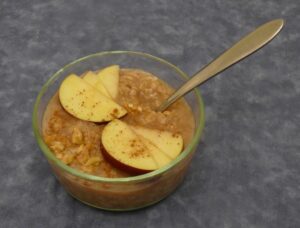“Dining with Inflammatory Bowel Disease” is such a great
article by Dr. Gu and Dr. Feagins. It’s a review covering research about the
dietary causes and treatment of IBD. If you can, read
the whole thing. It was limited access before, which motivated me to write
up this summary, but now it’s open access.
In terms of what *may* trigger, or increase the likelihood
of IBD:
IBD is increasing…and associated with a Western lifestyle.
Many suspect diet is a main component of that.
General beliefs
- Nearly half of people with IBD believe diet
contributes to the development of the disease
- 69% of people say they get little to no info
from providers.
- Info found on online is often restrictive,
conflicting and of poor quality.
What diet components might contribute?
- Meat—especially red meat, may be a component.
When meat is digested and broken down in the gut, it releases hydrogen sulfide,
which might be a part of the development of UC. There are several potential
mechanisms, including that the gut mucosa may be more permeable to pathogens.
While studies are mixed in their findings of the relationship between meat and
IBD, there is generally a trend toward finding that relationship, and a
prospective study showed that people with UC who had a higher red meat
consumption had a greater risk of relapse.
- Fat—a Western diet tends to have inflammatory
fats. There’s been a lot of interest, and suggestion that omega 3 fats might be
protective. One large study showed that women consuming healthier fats had
lower risks of UC, particularly.
- Emulsifiers—Much of the research is on animals,
showing that these may cause bacterial changes through less diversity in the
microbiome, a general increase in inflammation, less butyrate (a helpful short
chain fatty acid) and may cause increased intestinal permeability and changes
in the mucosa (!!!) Not good! Few studies have looked at humans, the little
study that has been done suggests that carrageenan may cause problems for IBD
patients.
- These are nearly ubiquitous in anything found on
a shelf in the grocery store in a package. This means things like carrageenan,
polysorbate 80, carboxymethylcellulose and the range of gums found in so many
foods on the shelves.
- Microparticles: these are small particles of aluminum,
titanium dioxide and silicon—more study is needed to see where these fit and
what impact they may have.
Beneficial effects
Finally! Research is starting to support the protective
effect of fiber. Most studies are suggestive of a protective effect, although
not all are statistically significant. Fiber may help with mucosal function
because it supports the production of short chain fatty acids.
Preventing relapse
One study reports that ~68% of people make diet changes to
prevent relapse, with 66% giving up favorite foods. But what are they choosing?
And does it help?
- Spicy, dairy, fatty foods and fibrous foods and
possibly alcohol were what patients ID’d as a problem, but studies haven’t
backed it up.
- There is brief, but important mention that many
test positive for lactose malabsorption, but a smaller portion have symptoms,
mainly diarrhea—43% with CD, and 32% with UC. That’s a lot, but it isn’t all
patients, either.
The diets…oh, the diets.
Exclusive Enteral Nutrition (EEN)
This means only 100% liquid feeding, either orally or by
tube feeding. This is generally done for pediatrics, and it is unknown why it
works, but it does for Crohn’s. Polymeric is as helpful as elemental. Studies
are good for children, as good as steroids are; this isn’t the case for adults.
(Cheryl’s note—my understanding is that EEN is often used in Japan with good
rate for success—and many adults are unwilling to do it. I can’t blame them!)
EEN does not seem to help UC.
CD-TREAT/ CDED (Crohn’s Disease Exclusion Diet) are two
diets that try to mix EEN and “whole foods” to increase tolerability for
children. This is very promising. (Cheryl’s note—details of the CDED have not
been fully released because studies are still ongoing. While some info is
available, it isn’t enough to fully design a diet. It’s frustrating as a
clinician. Stay tuned.)
SCD—Specific Carbohydrate Diet
The SCD removes many foods that are believed to be poorly
absorbed. It removed all grains, and focuses on fruits, vegetables, proteins,
nuts. Etc. While studies are still limited, there is indication of improvement,
including reduction in medications, and results have been promising, especially
in pediatric patients.
(Cheryl’s note: I wrote a review of the research on the SCD for RDs
a few years back which is mostly up to date.)
There are ongoing studies, including the DINE SCD and
PRODUCE study, which looks at comparing a strict SCD diet with a modified SCD.
These will be great additions to our overall knowledge.
Low FODMAP
Low FODMAP is generally used for IBS. It restricts rapidly fermentable
carbs, and if patients benefit, reintroduces them in a systemic way to identify
culprit foods.
There have been only a few studies, but those found that
people on a low FODMAP diet did see decreases in symptoms for people with IBD. Changes
were in symptoms like pain, bloating, etc.—fecal calprotectin did not change.
- Low FODMAP is not intended as a long-term
diet—it is an elimination diet. Following the elimination long term might lead
to nutrient deficiencies. Don’t do it!
Cheryl’s note: The article notes that low FODMAP is notoriously hard to follow. May I suggest that with the support of an experienced professional, it really should be quite manageable. 🙂 Monash University has a list of RDs around the world who are extensively trained. I do have some resources for low FODMAP here.
Semi-vegetarian diet
A small, prospective study found benefits in Japan. This has
not been duplicated in other places by other researchers. However, studies of
reducing meat in other circumstances have not yielded benefits. This may be
about different diet practices or adherence.
Curcumin may be a helpful adjunctive therapy. There is some
data for mild to moderate UC. There is also now data for patients with CD
showing endoscopic improvements as well. (Chery’s note—exciting!)
Moral of the story—more data is needed. And give lots of
love to providers who you see who know and care about diet and IBD, because
they are awesome!
Many thanks to Phillip Gu, MD and Linda A Feagins, MD.



 It’s still just barely still Celiac awareness month. So…may I recommend (request?) you do something to support the gluten-free community?
It’s still just barely still Celiac awareness month. So…may I recommend (request?) you do something to support the gluten-free community?

